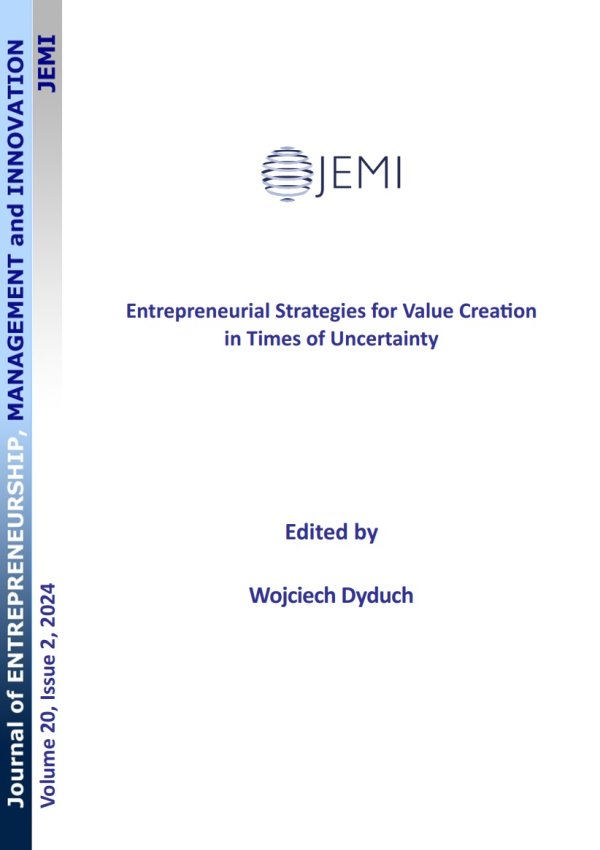Jan Fazlagić, Professor, Poznan University of Economics and Business, Department of Market Research and Services Management, Al. Niepodleglosci 10, 61-875 Poznan, Poland, e-mail: This email address is being protected from spambots. You need JavaScript enabled to view it. 
Aleksandra Szulczewska-Remi, Ph.D, Assistant Professor, Poznan University of Economics and Business, Department of Controlling, Financial Analysis and Valuation, Al. Niepodleglosci 10, 61-875 Poznan, Poland, e-mail: This email address is being protected from spambots. You need JavaScript enabled to view it. 
Windham Loopesko, MBA, J.D., Adjunct Professor, University of Colorado Denver, USA, Business Department, 860 Fillmore Street, Denver, CO 80206, USA, e-mail: This email address is being protected from spambots. You need JavaScript enabled to view it.. 
Abstract
Purpose: The policy to promote entrepreneurship plays a central role in the strategic management of cities. Therefore, the research question asks how urban policies in Poland support knowledge spillovers and entrepreneurship in comparison to German cities’ policies. Also investigated is how do Polish and German cities support entrepreneurship in different forms (including social entrepreneurship, youth entrepreneurship, and creative industries). Methodology: To answer this question, we have adopted a multiple-case study methodology relying on multiple sources of evidence, primarily strategic documents of the biggest Polish cities in the context of cross-country comparison with selected large cities in Germany, and semi-structured interviews with decision-makers representing municipalities from the analyzed cities in Poland. Building on the concept of the knowledge spillover theory of entrepreneurship, we refer to the approach in which spillovers of knowledge are a strategic lever through which firms distribute innovation and have profound implications for the region’s entrepreneurial activities development. Findings/research and practical implications: The research enriches our understanding of urban policies in Poland that support knowledge spillovers and entrepreneurship, and discovers the possible relationship between factors determining entrepreneurship in Polish and German cities. In all Polish and German cities, entrepreneurship was an important component of economic development strategy. However, Polish cities depend on EU funding to a much greater extent than German cities in implementing their economic development strategies. Cluster strategies in the framework of key cities’ industries were embedded in most urban policies, but a majority of Polish respondents believed that their cities should place greater emphasis on this policy. The main challenge for policy-makers is that current entrepreneurial polices should be more effective and oriented towards reinforcing the social perception of entrepreneurship, especially among young inhabitants. Originality/value: The research allowed enough data to be gathered to answer the research questions. However, future research validating the results in quantitative study is suggested. Also, some limitations in the research process were highlighted, such as a lack of personal contact with the respondents or different levels of economic development among Polish and German cities. Our research demonstrates the opportunities for knowledge spillover and sharing of good practices between the two countries.
Keywords: strategic management of cities, knowledge spillover theory of entrepreneurship, social and cultural entrepreneurship.






